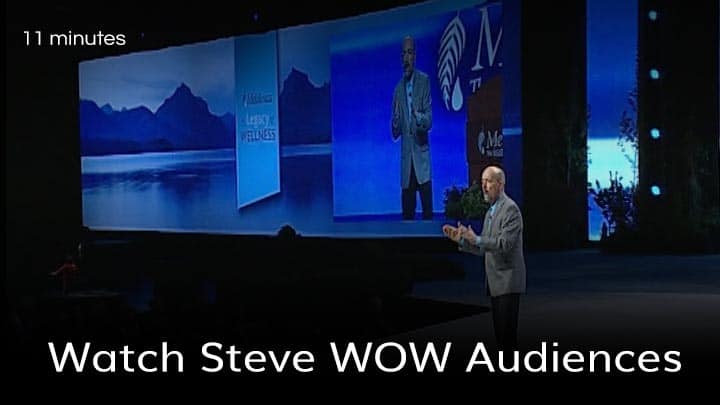Blog
Mindset for Motivation in Business
The Power of Mindset for Motivation: How Corporate Leaders Can Build an Unstoppable Attitude for Success
In today’s fast-paced business environment, maintaining motivation isn’t just a nice-to-have—it’s essential for sustained success. Corporate leaders, entrepreneurs, and business professionals face unprecedented challenges that can quickly drain energy and enthusiasm. The key to thriving in this demanding landscape lies not in external circumstances, but rather in developing the right mindset for motivation in business.
Understanding the Motivation Challenge in Modern Business
The corporate world presents unique obstacles to maintaining consistent motivation. Market volatility, increased competition, remote work challenges, and constant technological change create a perfect storm for motivation depletion. Research shows that only 32% of employees feel engaged at work, while 17% are actively disengaged—clearly indicating that traditional motivation strategies aren’t working.
The problem isn’t a lack of talent or resources; it’s a fundamental misunderstanding of how motivation works. Many business leaders treat motivation as a temporary fix rather than a sustainable mindset shift. They rely on external motivators like bonuses, recognition programs, or motivational speakers for quick bursts of energy, only to watch enthusiasm fade within weeks.

The Neuroscience Behind Motivation and Mindset
Understanding the brain science behind motivation provides crucial insights for business leaders. The prefrontal cortex, responsible for executive decision-making, works in conjunction with the limbic system, which processes emotions and motivation. When we understand this connection, we can therefore deliberately design thought patterns that support sustained motivation.
Neuroplasticity research demonstrates that our brains can be rewired through consistent practice. This means that developing a motivation-focused mindset isn’t just feel-good theory—it’s scientifically supported strategy for business success. The key lies in creating neural pathways that automatically default to motivated thinking patterns.
Mindset for Motivation in Business: The Foundation: “You Become What You Think About”
The principle that “you become what you think about” forms the cornerstone of motivation mindset development. This isn’t mere positive thinking; it’s about consciously directing your mental focus toward outcomes that drive business success. When leaders consistently think about growth, innovation, and possibility, they create mental frameworks that support motivated action.
In practice, this means replacing default negative thinking patterns with intentional positive focus. Instead of dwelling on market challenges, however, successful leaders train their minds to identify opportunities within those challenges. This shift in thinking patterns directly impacts decision-making quality, team leadership effectiveness, and overall business performance.
Starting Each Day with an Unstoppable Attitude
The morning routine of successful business leaders reveals a common pattern: they deliberately design their start-of-day experience to create momentum. This isn’t about generic morning routines copied from successful entrepreneurs; it’s about understanding how to prime your mind for motivated thinking from the moment you wake up.
Effective morning motivation strategies include reviewing your purpose and mission, visualizing successful outcomes for the day’s key activities, and engaging in physical movement that energizes the body and mind. The goal is to create a consistent trigger that signals to your brain that today will be productive and fulfilling.
Building Your Motivation Morning Protocol
- Purpose Alignment: Begin each day by connecting your daily activities to your larger business mission. This creates intrinsic motivation that sustains through challenges.
- Outcome Visualization: Spend 5-10 minutes mentally rehearsing successful completion of your day’s key objectives. This primes your subconscious mind to identify opportunities and solutions.
- Physical Activation: Engage in movement that increases energy and alertness. This could be exercise, stretching, or even energetic breathing exercises.
- Gratitude Practice: Acknowledge three business or personal elements you’re grateful for. This creates a positive emotional foundation for the day.
Mindset for Motivation in Business: Developing “Feel Good” Habits That Drive Results
The most successful business leaders understand that motivation isn’t just about mindset—it’s about creating systematic habits that consistently generate positive emotional states. These “feel good” habits aren’t indulgences; they’re strategic tools for maintaining peak performance.
Feel-good habits in a business context include celebrating small wins, maintaining connections with colleagues and clients, engaging in challenging but achievable projects, and regularly acknowledging progress toward larger goals. These habits create positive feedback loops that reinforce motivated behavior.
Strategic Habit Implementation
Progress Tracking: Implement systems that make progress visible and measurable. This could be project management tools, performance dashboards, or simple achievement logs. The key is creating regular evidence of forward movement.
Social Connection: Maintain meaningful connections with colleagues, mentors, and industry peers. Human connection is a fundamental motivation driver, and isolation quickly erodes enthusiasm.
Skill Development: Continuously engage in learning and skill development. The feeling of growing competence is intrinsically motivating and directly supports business success.
Challenge Calibration: Ensure your projects and goals are challenging enough to be engaging but not so difficult as to be overwhelming. This “flow state” balance is crucial for sustained motivation.
Enjoying the Journey Toward Business Goals
One of the most overlooked aspects of business motivation is the importance of enjoying the process, not just the outcomes. Leaders who only find satisfaction in final results create motivational patterns that are unsustainable and lead to burnout.
The journey-focused approach involves finding fulfillment in problem-solving, team collaboration, skill development, and incremental progress. This doesn’t mean lowering standards or accepting mediocrity; it means recognizing that business success is an ongoing process, not a destination.
Practical Journey Enjoyment Strategies
Process Celebration: Acknowledge and celebrate process improvements, not just outcome achievements. This creates motivation sustainability over long-term projects.
Learning Mindset: Approach challenges as learning opportunities rather than threats. This reframes difficulties as valuable experiences rather than demotivating obstacles.
Team Engagement: Find ways to make the work experience more engaging and collaborative. Motivated teams create exponentially better results than motivated individuals working in isolation.
Innovation Focus: Encourage creative problem-solving and innovation within your team. The excitement of finding new solutions is inherently motivating.
Mindset for Motivation in Business: Overcoming Motivation Killers in Corporate Environments
Corporate environments often contain systematic motivation killers that leaders must actively address. These include excessive bureaucracy, lack of autonomy, unclear objectives, poor communication, and insufficient recognition. Identifying and addressing these factors is crucial for maintaining team motivation.
Therefore, the most effective approach involves creating systems that support motivated behavior while eliminating or minimizing factors that drain energy and enthusiasm. This requires honest assessment of current practices and willingness to make structural changes that support long-term motivation.
Common Motivation Drains and Solutions
Micromanagement: Replace excessive oversight with clear expectations and regular check-ins. Trust builds motivation while micromanagement, conversely, destroys it.
Unclear Goals: Ensure every team member understands not just what they’re supposed to do, but why it matters and how success is measured.
Poor Communication: Implement regular, transparent communication systems that keep everyone informed and connected to the larger mission.
Lack of Growth Opportunities: Create clear paths for professional development and advancement. Stagnation is a major motivation killer.
The Compound Effect of Motivated Leadership
When leaders consistently model motivated behavior, it creates a compound effect throughout the organization. Motivated leaders inspire motivated teams, which produce better results, which reinforces the positive cycle. This compound effect is one of the most powerful tools for business transformation.
The key is understanding that motivation is contagious. Your mindset and energy level directly impact everyone around you. This places additional responsibility on leaders to maintain their own motivation, not just for personal success but for organizational effectiveness.
Implementing Motivation Mindset in Your Organization
Creating a motivation-focused culture requires systematic implementation rather than sporadic efforts. This involves training programs, policy changes, measurement systems, and ongoing reinforcement activities. The goal is to make motivated behavior the default rather than the exception.
Start with leadership development that focuses on mindset and motivation skills. When leaders understand and practice these principles, they can subsequently effectively model and teach them to their teams. This creates a top-down culture shift that permeates the entire organization.
Implementation Framework
- Leadership Training: Invest in comprehensive motivation mindset training for all leadership levels.
- System Design: Create organizational systems that support and reinforce motivated behavior.
- Measurement and Feedback: Implement metrics that track motivation levels and their impact on business results.
- Continuous Reinforcement: Establish ongoing programs that maintain focus on motivation and mindset development.
Mindset for Motivation in Business: Sustaining Long-Term Motivation in Business
The ultimate goal isn’t short-term motivation spikes but sustainable enthusiasm that persists through challenges and setbacks. This requires developing resilience, maintaining perspective, and creating support systems that help maintain motivation during difficult periods.
Ultimately, long-term motivation sustainability comes from aligning business activities with personal values and purpose, creating meaningful connections with colleagues and clients, and maintaining a growth mindset that views challenges as opportunities for development rather than threats to success.
Conclusion: Your Next Steps to Motivated Success
Developing a mindset for motivation isn’t a one-time event—it’s an ongoing practice that requires commitment, consistency, and strategic implementation. The businesses that thrive in today’s competitive environment are those that understand motivation as a systematic approach to peak performance rather than an occasional inspirational boost.
Start by assessing your current motivation patterns and identifying areas for improvement. Implement the strategies outlined in this guide systematically, beginning with your own mindset development and gradually expanding to your team and organization. Remember that sustainable motivation comes from internal alignment and purposeful action, not external circumstances.
The investment in motivation mindset development pays dividends in every aspect of business performance: improved decision-making, enhanced team collaboration, increased innovation, and sustained competitive advantage. In a world where external circumstances are increasingly unpredictable, the ability to maintain motivation regardless of circumstances becomes your most valuable business asset.
Take action today. Your future success depends not on external conditions but on your commitment to developing and maintaining an unstoppable attitude for success. The choice is yours, and the time is now.
About Steve Rizzo: The Mindset Adjuster, Steve is a personal development expert, Business Motivational Speaker, former comedian, and best-selling author. A Hall of Fame Speaker Inductee—among fewer than 200 worldwide since 1977—he’s dedicated to unlocking your happiest self.

